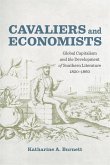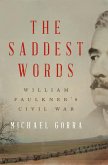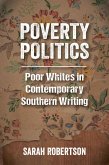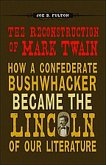With contributions by Ted Atkinson, Robert Bray, Patsy J. Daniels, David A. Davis, Taylor Hagood, Lisa Hinrichsen, Suzanne Marrs, Greg O'Brien, Ted Ownby, Ed Piacentino, Claude Pruitt, Thomas J. Richardson, Donald M. Shaffer, Theresa M. Towner, Terrence T. Tucker, Daniel Cross Turner, Lorie Watkins, and Ellen Weinauer
Mississippi is a study in contradictions. One of the richest states when the Civil War began, it emerged as possibly the poorest and remains so today. Geographically diverse, the state encompasses ten distinct landform regions. As people traverse these, they discover varying accents and divergent outlooks. They find pockets of inexhaustible wealth within widespread, grinding poverty. Yet the most illiterate, disadvantaged state has produced arguably the nation's richest literary legacy. Why Mississippi?
What does it mean to write in a state of such extremes? To write of racial and economic relations so contradictory and fraught as to defy any logic? Willie Morris often quoted William Faulkner as saying, "To understand the world, you must first understand a place like Mississippi." What Faulkner (or more likely Morris) posits is that Mississippi is not separate from the world. The country's fascination with Mississippi persists because the place embodies the very conflicts that plague the nation.
This volume examines indigenous literature, Southwest humor, slave narratives, and the literature of the Civil War. Essays on modern and contemporary writers and the state's changing role in southern studies look at more recent literary trends, while essays on key individual authors offer more information on luminaries including Faulkner, Eudora Welty, Richard Wright, Tennessee Williams, and Margaret Walker. Finally, essays on autobiography, poetry, drama, and history span the creative breadth of Mississippi's literature. Written by literary scholars closely connected to the state, the volume offers a history suitable for all readers interested in learning more about Mississippi's great literary tradition.
Mississippi is a study in contradictions. One of the richest states when the Civil War began, it emerged as possibly the poorest and remains so today. Geographically diverse, the state encompasses ten distinct landform regions. As people traverse these, they discover varying accents and divergent outlooks. They find pockets of inexhaustible wealth within widespread, grinding poverty. Yet the most illiterate, disadvantaged state has produced arguably the nation's richest literary legacy. Why Mississippi?
What does it mean to write in a state of such extremes? To write of racial and economic relations so contradictory and fraught as to defy any logic? Willie Morris often quoted William Faulkner as saying, "To understand the world, you must first understand a place like Mississippi." What Faulkner (or more likely Morris) posits is that Mississippi is not separate from the world. The country's fascination with Mississippi persists because the place embodies the very conflicts that plague the nation.
This volume examines indigenous literature, Southwest humor, slave narratives, and the literature of the Civil War. Essays on modern and contemporary writers and the state's changing role in southern studies look at more recent literary trends, while essays on key individual authors offer more information on luminaries including Faulkner, Eudora Welty, Richard Wright, Tennessee Williams, and Margaret Walker. Finally, essays on autobiography, poetry, drama, and history span the creative breadth of Mississippi's literature. Written by literary scholars closely connected to the state, the volume offers a history suitable for all readers interested in learning more about Mississippi's great literary tradition.
Dieser Download kann aus rechtlichen Gründen nur mit Rechnungsadresse in A, D ausgeliefert werden.









